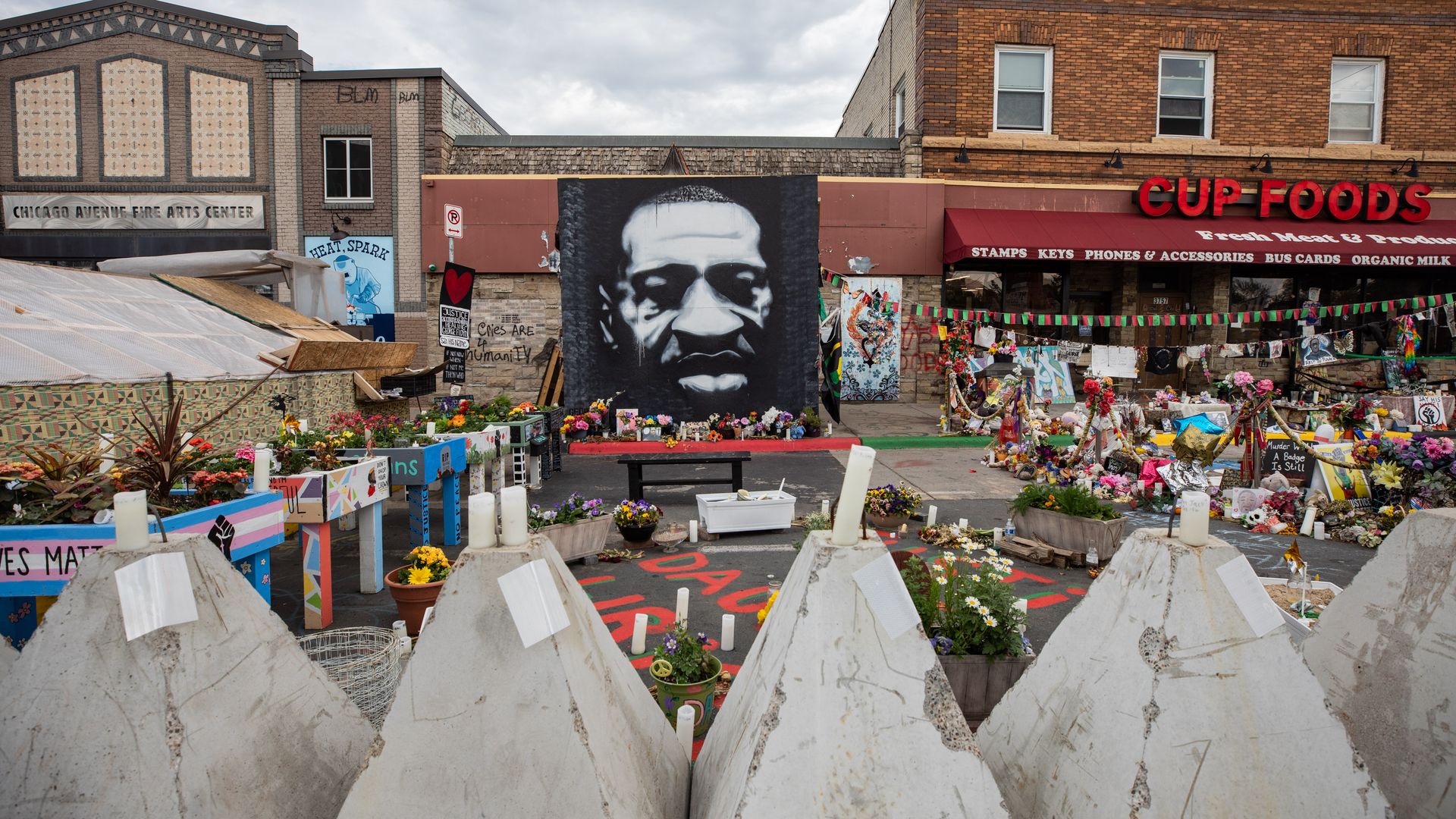State supreme court approves ballot question on Minneapolis police
Add Axios as your preferred source to
see more of our stories on Google.

A memorial to George Floyd outside the Cup Foods corner store where he died last March. Photo: Nicholas Pfosi/Bloomberg via Getty Images
Minneapolis voters will be able to weigh in on the city's police department on the local ballot, the Minnesota Supreme Court ruled Thursday.
Why it matters: The proposed charter amendment was spurred by mass protests against police brutality after George Floyd's death last year. It would replace the city's police department with a new Department of Public Safety that "could include" police officers "if necessary."
- The ballot language, which was approved by the City Council, would strike out a requirement that Minneapolis maintains a police department with a minimum staffing level.
- The specifics of the new safety agency's operations would be left up to the City Council and the mayor.
State of play: A lower court ruled last week that the wording — approved just in time to make it on the ballot — failed to adequately describe the effects of the proposed amendment.
- But the state's supreme court concluded that the challenge to the language — filed by private residents — did not meet the "high standard" set in legal precedents, Chief Justice Lorie Gildea wrote in the three-page order.
- With early and absentee voting opening at 8am Friday, the court was under pressure to act quickly and said it would release a full opinion later so voting in the municipal elections can get underway.
- Lawyers on both sides had agreed the high court's ruling would be the final word given the countdown to Friday, AP reports.
What they're saying: "Lawsuits brought forward by Minneapolis residents who have personal, financial, and political ties to Mayor Jacob Frey were clearly never about the ballot language — they were about trying to steal our right to vote on question 2," the TakeAction Minnesota coalition, which helped spearhead the initiative, said in a statement following the ruling.
- "In Minneapolis, we know the power of our multiracial democracy, and believe in a unified path forward."
"This is the right call," Minneapolis Mayor Jacob Frey said in a statement. "The charter amendment itself is fundamentally bad policy. But ... Minneapolis residents deserve the opportunity to weigh in this fall and bring this debate to a close so we can move forward with clarity for our residents' safety."
The big picture: Minneapolis is one of several cities reimagining policing after global Black Lives Matter protests.
